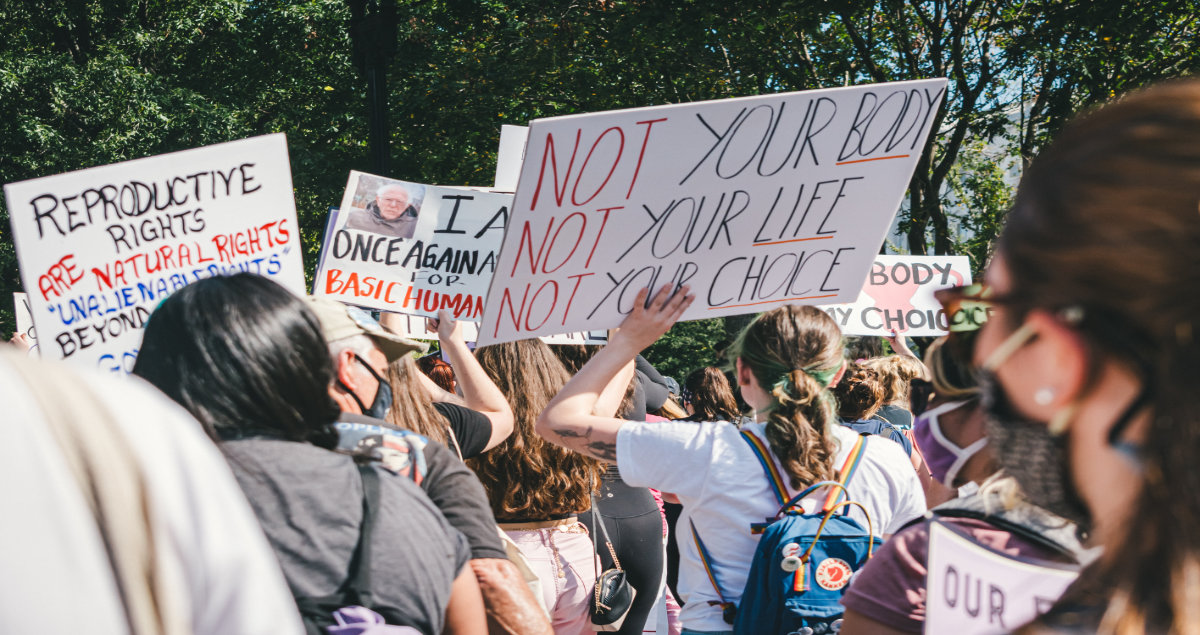The Supreme Court decision of June 25 that ended the constitutional right to abortion made one thing very clear. The battle for reproductive rights, which began in the 1800s, is not over. And even though American women in eight states lost the right to reproductive freedom, it is up to all of us to organize, object, and continue the never-ending fight for women’s rights. To understand where the Supreme Court decision may lead us and how we can change it, we need to look back at some of the women who mentored other women and fought for reproductive rights in America in the last two centuries.
In 1885, Emma Goldman left Lithuania and immigrated to the U.S. to receive an education. She became a midwife and political activist who educated woman about contraception. In 1916, she was arrested for violating the Comstock Law because lectures about contraception were considered obscene. These laws, which were passed by Congress after the Civil War, also included related state laws that made it illegal to educate women and distribute information about contraception or abortion, especially through the U.S. postal service. This arrest did not deter Emma who continued her life of activism and mentored other women, such as Margaret Sanger.
Margaret Sanger knew that being convicted under the Comstock Law could result in a long sentence. However, she persisted in her work as a nurse and birth control educator and sent diaphragms through the mail. Just like Emma Golman, she felt the repercussions of the Comstock Act. She was arrested for establishing the first birth control clinic in the U.S. but continued her work after her release. In 1921, she founded the American Birth Control League, which later became Planned Parenthood.
Margaret Sanger also influenced her friend Katharine McCormick, who was a wealthy heiress and a member and supporter of the National American Woman Suffrage Association. McCormick used $20 million dollars of her fortune to help all women by donating this money to the research and development of the birth control pill that hit the market in 1960. Margaret was a biologist, and she moved to the West Cost so she could be involved in the work that led to the pill. Margaret’s work coincided with the feminist movement of the 1960s and 1970s and led to educational and career opportunities for women who could plan when they wanted to start a family without worrying about taking time off to raise children.
Our last heroine, Dr. Helen Rodriguez Trias, was the first Latina director of the American Public Health Association. She was born in New York but spent her childhood in both Puerto Rico and New York. In 1970, Dr. Trias returned to New York and accepted a job in the South Bronx as head of pediatrics. While in this position, she became involved in the fight for women’s health justice. She realized that race and class determined the rights that women had. Even though middle-class white women had to fight for birth control and were denied requests for sterilization, poor Latina and Black women were often coerced and pressured into sterilization as a means of population control. Many of these women were the victims of lies because they were told that sterilization could be reversed. In 1979, Dr. Rodriguez Trias founded the Committee to End Sterilization and the Committee for Abortion Rights and Against Sterilization Abuse. Her actions led to required written consent for sterilization in a language the woman could understand and a waiting period between consent and the procedure.
In spite of years of hard work and advancement in women’s rights, the Supreme Court wants to turn the clock back to a time when women were denied rights to make decisions about their lives and obtain contraceptives. And the decision about abortion will not end with women. It will affect the freedom of all Americans. A few days ago, Supreme Court Justice Clarence Thomas stated that the rulings that established gay rights and contraceptive rights should be reconsidered now. He has labeled those rulings as “demonstrably erroneous decisions.” His words are a warning and a call to action.
The words of Thomas will motivate legislators in red states to take away more rights. The legislators feel empowered because they know the Supreme Court supports their conservative beliefs. We must object now and keep this issue in the forefront of everyone’s mind, so we can bring out the vote in November and elect courageous people who vote for the majority of Americans. We need to stand on the shoulders of the women who went before us and demand that Congress take action now to abolish the filibuster and pass legislation to guarantee our human rights.
Sources
www.bedside.org/features/1445-5-kick-as-women-in-history-who-fought-for-reproductive-rights
www.mic.com/articles/147656/4-badass-american-women-who-fought-for-birth-control-and-sexual-freedomwww.powertodecide.org/news/nine-women-who-fought-for-reproductive-freedom
www.womenshistory.org/education-resources/margaretsanger
www.nps.gov/people/dr-helem-rodriguez-trias

